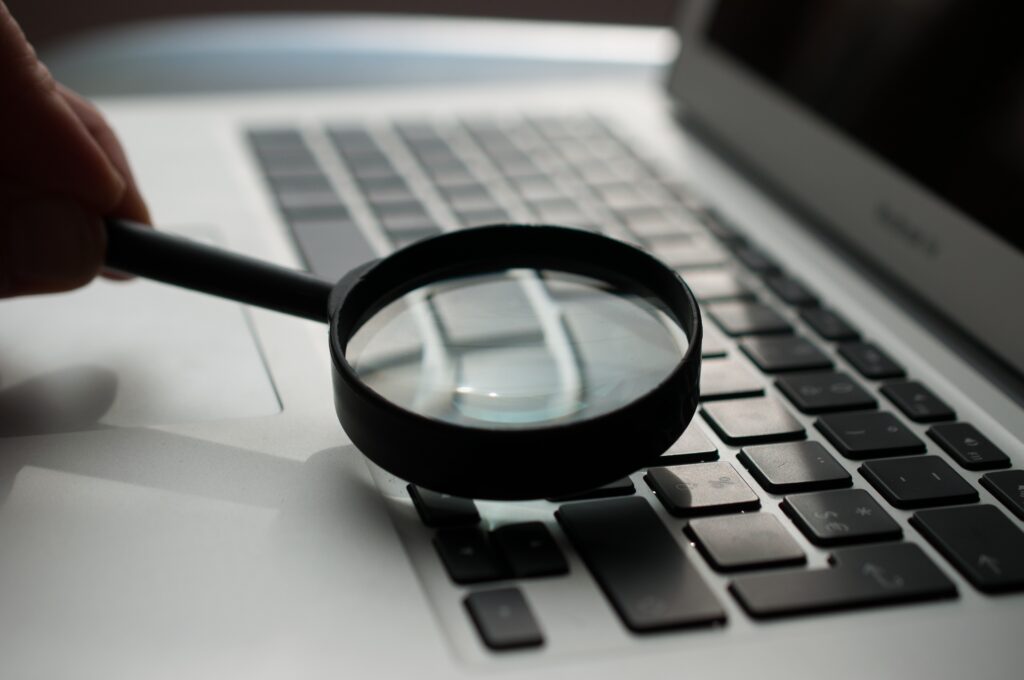x min read

Table of Contents
Introduction
Research is a cornerstone of academic success, equipping students with the tools to explore, analyze, and understand the world around them.
Developing effective research skills not only enhances academic performance but also fosters critical thinking and a lifelong love of learning.
Today, we’ll dive into the essentials that you need to know to top your researching game.
Step-by-Step Guide
Below are the steps necessary to conduct good, in-depth research on any topic of choice. Of course, some topics may be easier or harder to absorb than others.
For that reason, step 0 is mentally preparing yourself. Researching can and will be boring at times, so get used to it.
- Assess your resources: What do you have access to? What can you use that is reliable? What can’t you use? Maybe your only reliable source are books, while the internet is off limits.
- Check for reliability: Can xyz be trusted or no? For some suggestions, consider the following questions:
- Does it have a stated author?
- What type of online presence does it have?
- Is it a .com, .net, .org, .gov, or .edu?
- Is it trusted by other users online?
- How many publications/published content do they have?
- Are they active?
- Content Absorption: Ultimately, you are researching xyz because you’re looking to absorb that said concept. For this reason, you must assess your learning style and takes notes effectively. That’s unless you prefer not to take notes and just use your eyes and ears to retain information, which too, works just fine (for the concepts that interest you of course).
- Citations: This depends on the context. If you’re doing this for a school assessment, citing texts and sources online are a given. But if not, don’t bother. Different academic disciplines may follow different citation styles (APA, MLA, etc.).
- Ask questions: When researching, ask more questions. Why is xyz true? What does xyz really mean? How did we perceive xyz 1000 years ago? Who started xyz and when? The more questions you ask, the deeper the hole you big into the concept; that way, you get the most out of the information you dug through.
- Be realistic: Don’t except to cover several pages of research of a concept, especially if it doesn’t interest you. The goal is dumb and makes no sense. Set realistic and achievable expectations if they aren’t already.
- DO NOT PLAGIARIZE!
You see? Not so bad after all. Your job is to use this list to your advantage to research more effectively and master the game that was set for you.
If you wish to continue reading this post, feel free to. But, they’re only tips directed to making you a better researcher, so don’t feel pressured.

Jigsaw Puzzles – Unsplash.com
Research Techniques
Observation
If you’re using videos as research, observe what you see. Your eyes are the greatest tools in your research-tool box, so use them.
Experimentation
Picture this: you just recently conducted research on how you can jump higher with some step-by-step guide online. So, you decide to test it out. It turns out that is actually works!
That right there is a prime example of conducting high-quality research, which works.
Flitering
Learn to use search filters, explore database-specific tools, and understand how to access full-text articles.
For example, if you wished to search for a specific site on Google, you can just type in ‘site:’ followed by the website name to find it.
Surveying & Interviewing:
If your research involves gathering original data, learn effective survey and interview techniques. Craft questions carefully to extract valuable insights from respondents.
Data Analysis:
Acquire basic data analysis skills. Depending on your field, this may involve statistical analysis, content coding, or other methods. Software tools like Excel, SPSS, or qualitative analysis tools can be beneficial.
Source Evaluation
1. Authorship and Authority:
Assess the credentials of authors. Look for qualifications, relevant expertise, and affiliations. Determine the authority of the publication or platform hosting the source.
2. Currency and Relevance:
Consider the publication date of the source and its relevance to your research question. In rapidly evolving fields, recent information may be crucial, while historical context may be essential in other cases.
3. Peer Review:
What information do you peers have? Do they have similar or unlike information? Make comparisons to answer these questions.
4. Bias and Objectivity:
Be mindful of potential biases in your sources. Evaluate whether the information is presented objectively or if there is a noticeable bias. This awareness is crucial for producing well-rounded and unbiased research.
5. Cross-Verification:
Cross-verify information from multiple sources. Consistency and convergence of information from different reputable sources strengthen the reliability of your findings.

Check Images – Unsplash.com
Citation Methods
1. Understanding Citation Styles:
Different academic disciplines use distinct citation styles. Familiarize yourself with the citation style recommended by your institution or discipline (APA, MLA, Chicago, etc.).
2. Using Citation Management Tools:
Explore citation management tools like Zotero, EndNote, or Mendeley. These tools automate the citation process, making it easier to organize and generate accurate citations.
3. Consistent Formatting:
Ensure consistency in formatting throughout your document. Accurate citations and a properly formatted bibliography or reference list add professionalism to your research.
4. Avoiding Plagiarism:
Plagiarism is the worst mistake you can make. Don’t mess up so bad that you end up here.
Conclusion
Researching is a skill that you’ll be using throughout your whole life, so the best decision is to take action and improve it now so that in a few years, conducting research is as easy as doing 5 jumping jacks on top of your home carpet (random, I know).
With better researching capabilities, students are empowered to approach challenges with curiosity and confidence, fostering a love for learning that extends far beyond the classroom.
As you embark on your research endeavors, remember that the skills you develop today will serve you well in your academic and professional pursuits tomorrow.



